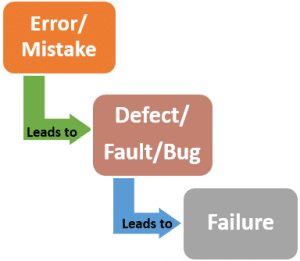- 1 Post
- 24 Comments


It’s a common dictionary, which is probably not very good in this context. I think it would be more appropriate to refer to ISTQB, as it is likely the most relevant source when it comes to software testing and failures:
Human beings make errors (mistakes), which produce defects (faults, bugs), which in turn may result in failures. Humans make errors for various reasons, such as time pressure, complexity of work products, processes, infrastructure or interactions, or simply because they are tired or lack adequate training
Or to put it simple:

We’re seeing a failure here.






Thanks for your reply. The idea of zero-knowledge authentication is that the password never touches the server. Instead, the user can prove that they know the password when logging in by solving a challenge. This enables the user to log in from any new device without the need to transfer keys between them. I’ll take a closer look at your suggestions though. Thanks again!



I’d argue that the system shouldn’t automatically convert negative numbers to positive numbers. Instead, it should display an error to the user. Of course, that’s an abstract thought as I don’t know what was the system and who interacted with it.